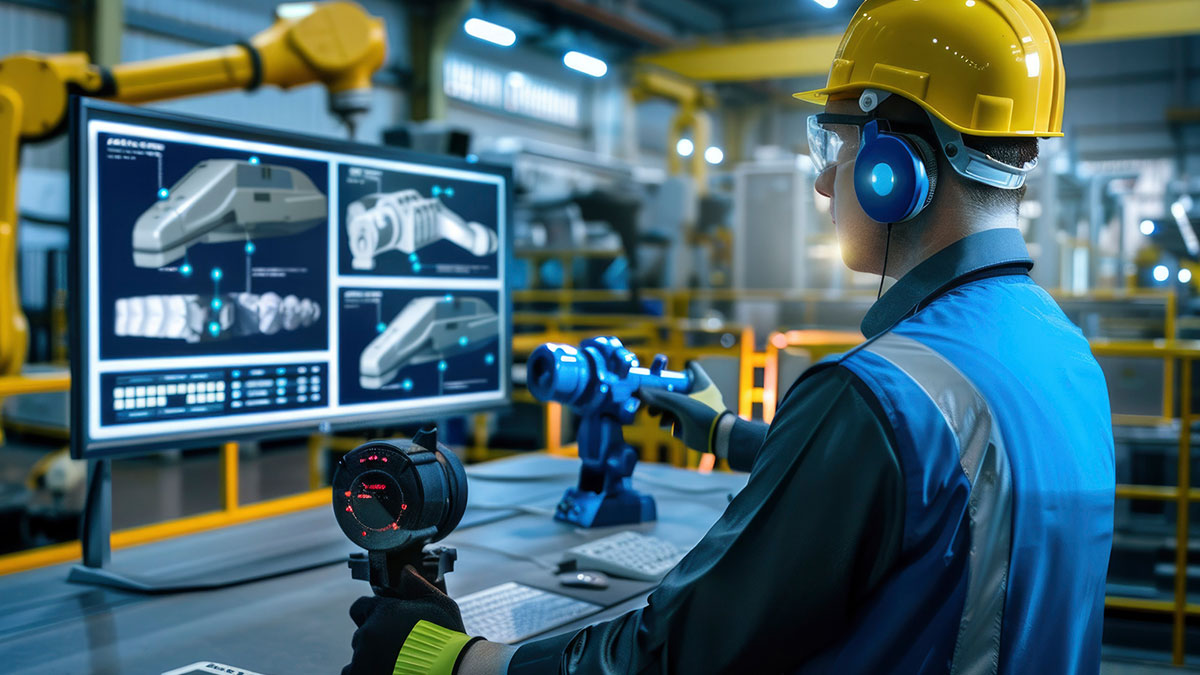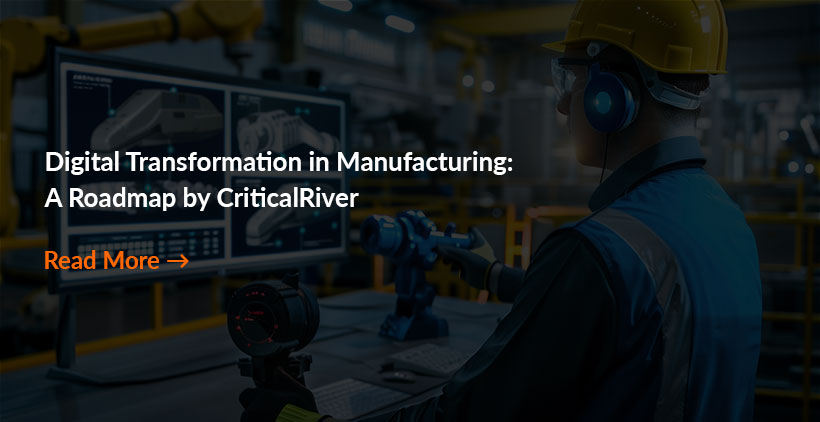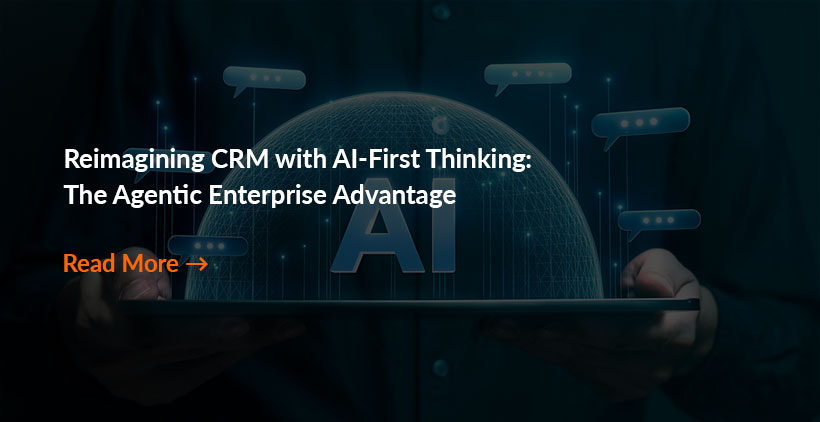
Automation, robots, AR-VR, and IoT are accelerating the progress of smart factories and digital transformation in manufacturing. With AI-based software and scalable cloud platforms, organizations can analyze the data critical to the efficacy of their production ecosystem. They can use digital twins to create virtual replicas of their physical assets and optimize performance. Leveraging sensors and machine learning algorithms, they can predict when their machines need maintenance and minimize downtime.
A Gartner survey of over 2400 CIOs finds that the most critical outcomes with technology investments in manufacturing are improved operating margins (67%), higher revenue (46%), and compliance adherence (45%).
The Blueprint for Success with Digitalization
Providing technology solutions to enterprises of different sizes, CriticalRiver believes that business transformation with digital tools is essential for all companies to thrive in the manufacturing domain. Those with well-defined objectives should constantly assess their capabilities and gaps to improve. It is vital to have KPIs and identify areas where performance can be refined. Organizations on their digital transformation (DX) journey must also foster a culture of innovation and prioritize scalability while focusing on data security and compliance.
Due to skill gaps, legacy systems’ incompatibility with modern technologies, data complexities, and cybersecurity risks, SMEs are usually hesitant to launch or upgrade their DX initiatives. CriticalRiver tailors its solutions for such entities and helps deploy low-cost, high-impact solutions that address prioritized requirements. Whether for inventory management, automation on assembly lines, or risk management, we serve innovation enterprises looking to grow their businesses by harnessing best-of-breed technologies. Such organizations can also leverage government incentives for incremental improvements.
Top Benefits of Digital Transformation in Manufacturing
Today, manufacturers use DX to optimize processes. Digital maturity helps create new business models, and companies can differentiate their brands and sharpen their competitive edge. The key benefits of integrating evolved digital technologies into manufacturing operations are:

Product quality improvement
Connected factories with automated quality-control systems can improve products through real-time monitoring and machine learning. They can detect and rectify defects early, ensuring consistent adherence to quality standards. When data-based insights keep improving design and manufacturing techniques, products will meet customer expectations with fewer recalls or reworks.

Process efficiency
Streamlining production flows, automation, and digital tools reduce downtime and operational delays. AI and ML guide engineers through different manufacturing steps for customer-centric product design, safety of use, and agile production. IoT optimizes assembly lines and alerts engineers on raw material requirements and equipment maintenance needs. Process efficiency improves with reduced manual tasks, increased throughput, and smoother inventory management.

Lower costs and better margins
Digital transformation in the manufacturing industry enables factory owners to trim operational expenses through optimized resource utilization and minimized waste. Data-driven AI insights help organizations realize cost-saving opportunities by getting end-to-end visibility of their operations. They can fine-tune processes by catching anomalies, improving packaging methods, and choosing reliable vendors. Cost reduction without any compromise on product quality leads to a positive impact on the bottom line.

Supply chain management
With digital supply chains, managers can forecast demand, identify logistics issues, reduce lead times, and prevent slowdowns. Digital supply chains enable real-time visibility to monitor raw materials, products, inventories, and resources. Managers can track goods’ movement and transportation conditions, such as temperature and humidity. Based on historical and real-time sales data aligned with market trends and customer preferences, decision-makers can plan their production levels more efficiently. Supply chains, therefore, become more responsive and resilient.

Faster time-to-market
Organizations accelerate their production processes by adopting tried-and-tested procedures for digital transformation in manufacturing. According to McKinsey, digital twins have 20% to 50%, and they reduce costs for many organizations. They have also reduced the number of pre-production prototypes, typically from two or three to just one. Faster, error-free, and more efficient processes enable manufacturers to respond swiftly to market demands and launch products ahead of their competitors.

Sustainable manufacturing
DX promotes sustainable manufacturing practices by streamlining processes, optimizing resource consumption, reducing paper use, and minimizing waste. Manufacturers who leverage cloud solutions and data centers powered by renewable energy decrease greenhouse gas emissions. Manufacturers can also set and achieve new sustainability goals toward their environmental commitment by constantly tracking insights on how operations impact the environment.

Regulatory compliance
Real-time monitoring and automated reporting by digital tools streamline an organization’s compliance with manufacturing industry standards. Advanced ERP systems can be programmed to track compliance-related data for different business functions, ensuring adherence to applicable regulations. Similarly, quality management systems document quality metrics, ensuring compliance with benchmarks such as ISO 9001 and auditing and reporting frameworks. Such setups reduce the risk of legal issues and enhance the overall operational integrity of a business.
Paving the Way for a Sustainable and Resilient Future in Manufacturing
As we move towards Industry 5.0, the synergy between humans and machines will work to improve operations, business resilience, and customer experience. In this phase, organizations are expected to repair the damage done by previous industrial revolutions and minimize the impact of their processes on climate change. With its data-centric, perceptive, and automated tools, digital transformation in manufacturing will become increasingly critical to delivering value and achieving new business goals.
To explore how these cutting-edge technologies can propel your organization’s transformative journey, write to us at contact@criticalriver.com.




